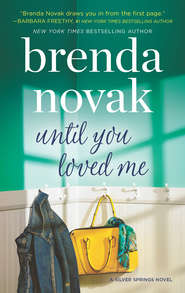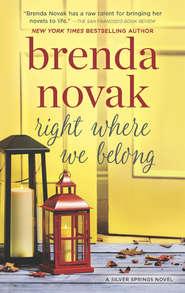По всем вопросам обращайтесь на: info@litportal.ru
(©) 2003-2025.
✖
The Heart of Christmas
Автор
Год написания книги
2018
Настройки чтения
Размер шрифта
Высота строк
Поля
“I remember the musty smell of it more than anything else. And I remember playing with the old stuff in the attic. Dressing up in the clothes I found in various trunks, taking my Barbie dolls up there, that sort of thing. Being in that space made me a bit uneasy, even back then, but it was the perfect size for a child and the only place I wouldn’t be bothered by my brothers. I could play for hours.”
“What about the basement?”
She shivered. “I never played here. But I remember my brothers locking me in once, just to frighten me.”
“That was where Mary’s body was found.”
“Yes. So you can imagine how terrified I was. They called through the door, telling me that her ghost was going to get me, and I was absolutely convinced they were right.”
“How’d you get out?”
“My mother heard me screaming and came to the rescue.”
A faint smile curved his lips. “I bet she was angry.”
“She was.”
“What happened to your brothers?”
“They were put on restriction.” She shook her head at the memory. They’d found her terror so funny.
Ted made a few quick notes. “Okay, so Mary’s parents built this place—and it wasn’t ever renovated until your parents took over. Is that correct?”
“It is.”
“How old was Mary when John and Harriett moved in?”
“She wasn’t born yet. But even after she was, she didn’t have any older brothers to torment her. She was an only child.”
“After her death, rumors circulated—and persisted—that her father might have killed her. Since he also discovered the body, and it was nearly Christmas, I always think of it as the nineteenth-century JonBenét Ramsey case.”
“Was there any evidence to suggest he did the deed?”
“Not really. He was known to have a violent temper and knocked her mother around a bit. He also didn’t seem to grieve much. But not all men show their pain.”
She’d left the doors to the parlor open. She almost always did that, so her staff would feel free to approach her, if necessary. But today it meant that when Brent Taylor came through the front door, returning for the second time, she happened to see him. He saw her, too, and paused as if he had something to say, so she stood up and hurried over.
“You’re late for checkout, but I can take care of that now, if you’re ready.”
His gaze shifted to Ted before coming back to her. “Would you mind if I stayed one more night?”
Couldn’t anything go her way? “A Room with a View has no openings?”
He frowned as if recognizing the disappointment in her voice. “I was just over there. They’re booked.”
Of course they would be—despite their cheesy decorations. Full occupancy seemed to come so easy for them. But they also spent a great deal more on advertising. They always had more to spend.
She wanted to refuse but Ted was looking on, and she knew she wouldn’t be able to come up with a good excuse for turning away business. Ted and the rest of her friends had been privy to her financial difficulties in the past few years. “That’s fine, I guess.”
“Thanks. Do you know a good place for dinner?”
“Just Like Mom’s has delicious home-style food, if you like that sort of thing. It’s down the street.”
He hesitated briefly. Then he took her elbow and pulled her close so he could whisper in her ear. “I could’ve handled this morning at your place a lot better. I’m sorry,” he said, then headed up the stairs to his room.
“What was that all about?” Ted asked.
Eve shut the doors in spite of her usual policy and resumed her seat. “Nothing. He’s just a...a patron.”
“Do all patrons whisper in your ear like that? It looked sort of intimate.”
“It wasn’t.” She considered admitting what she’d done, as she had with her parents, but couldn’t bring herself to do it. These days, Ted was happily married and the proud stepfather of a beautiful teenage girl. She didn’t want to be perceived as still struggling. Of course, he’d likely hear the rumor, so there was probably no way to prevent him from finding out. But she’d deal with that if and when it happened. She just hoped no one would bring it up or tease her tonight at her party or at their weekly coffee date. Her friends were wonderful, but they’d been so close for so long that nothing was off-limits.
“I only have a few more minutes,” she told him, “so we should get on with this.”
They talked about what Unsolved Mysteries had discovered when they came to town, which was virtually nothing as far as forensic evidence was concerned. Then they discussed the bits and pieces of information that had been recorded in the journals of various people who’d known the Hatfields at the time. These mostly contained venomous recriminations against John Hatfield, who was wealthy and austere and not particularly well liked. Although Eve couldn’t say there were any solid leads in those journals, she’d kept copies of everything she’d come across relating to the history of the B and B. She even had a laminated photocopy of a newspaper from the late 1800s that regurgitated the story, and a box of research material Unsolved Mysteries had given her when they were done with the shoot.
She went to her office to get the box but she couldn’t find it. So she’d brought back only the things she’d collected over the years.
“I can’t imagine where I put the stuff Unsolved Mysteries left,” she told Ted.
“But you’ll find it for me?”
“I will. I’ll check the attic when I have a minute.”
He accepted what she did have. “You seem to go back and forth on this, but, for the record, do you think the inn is haunted?” This had always been a difficult question for Eve. She didn’t want to commit herself because, crazy though it sounded, sometimes it did seem as if Mary’s spirit lingered. She told him about the drapes moving without being touched, about various doors closing and other noises she’d heard when there shouldn’t be anyone else about. One time, she was positive she’d heard someone moaning in the basement. That had been chilling. Unless there was something she absolutely had to get, she never went down there alone.
“I honestly don’t know. But I feel angry with whoever killed Mary and I hope justice will, somehow, some way, prevail, even at this late date,” she told him.
“Do you think the father did it?”
“I think Mary’s mother believed he did.”
His eyebrows shot up. “What makes you say that?”
“She wouldn’t speak a word after Mary’s death.”
Ted leaned forward. “I’ve never heard you or anyone else say that before.”
“I just found out about it. It was in an email I received a few days ago from a couple who come here every summer—a historian and his wife who once had family living in the area. He stumbled across a letter from his great-great-grandmother dated several years after Mary’s death. It refers to Harriett Hatfield and her enduring silence, and he thought I might be interested. According to this letter, Harriett became a hermit and would scarcely go out after that, which is probably why more people didn’t mention it. They didn’t really have any contact with her.”
“Her silence and withdrawal could be a reaction to her grief,” Ted suggested.
“True, but she could also have been an abused wife, rebelling in the only way she could without risking her own life.”
“It’s something to consider.” He stood and slipped his phone in his pocket. “That’s it for today. I’ll call if I need anything else.”
She gave him a weak smile. “You know where to find me.”











